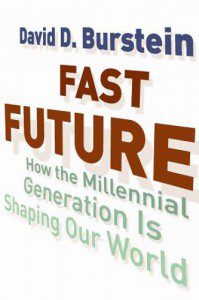Bradley Wright, Upside: Surprising Good News About the State of Our World (Bloomington, MN: Bethany House Publishers, 2011), 256 pages.
Bradley Wright, who earned his Ph.D. at the University of Wisconsin and who is currently a Professor of Sociology at the University of Connecticut, has written an audacious and impressive book. This week the focus of our nation has been on, among other things, President Obama’s speech to a Joint Session of Congress to promote his proposed “‘American Jobs Act” (meant to rectify an abysmal economic climate) and the upcoming 10th Anniversary of the September 11, 2011 Terrorist Attacks (in the run up to which Vice President Biden has confirmed that, “counterterrorism officials were investigating a ‘credible’ but uncorroborated threat of a car-bomb attack in New York City or Washington, timed to coincide with the 10th anniversary of the Sept. 11 attacks”). In the face of such circumstances, Wright is bold to write an optimistic book about why, in the grand scheme of things, the proverbial glass is in many ways more than half-full.
I began this brief review by noting Wright’s professional credentials as a sociologist because he backs up his claims with reams of socio-scientific statistics that are accessibly presented and discussed. He readily admits that there is still much work to be done and still much that is wrong with the world. Nevertheless, taking the long view, his data shows that the response to the question, “Is there any other period in history when people were better off than now?” is “I don’t see one.”
Some people hold the 1950s as the good ol’ days, but going back to the ’50s would entail having less money, higher expenses, inferior health care, less education, and shorter lives. Women would have far fewer job opportunities and many blacks wouldn’t be able to vote. Worldwide, there would be far more war and starvation. Would you really want that? (205)
As you proceed through the book, Wright justifies these claims chapter-by-chapter regarding finances, education, health care, happiness, crime, war, freedom, faith, family, and the environment.
As an undergraduate religion and philosopher major, one question that frequently arose in many different classes was the so-called “Problem of Evil” that has vexed philosopher and theologians for centuries and that has turned many people of faith into atheists over the years. One traditional name for the Problem of Evil is theodicy from the Greek word theos (“God”) and dike (“justice”). The dilemma is how does one explain all the injustice and evil in the world with the existence of God, who presumably could do something about the injustice in the world if God so desired. Through the work of philosophical theologians like David Ray Griffin and John D. Caputo, I have found a satisfactory “solution” (at least satisfactory to myself for the moment) to the Problem of Evil by redefining how I understand God: that God is less an “all-powerful” figure who periodically intervenes from heaven and that God is more a compassionate presence that is constantly luring us and prompting us to respond to all of life (including suffering and evil) with compassion, love, and justice. A shorter and more accessible version of this line of thought can be found in Harold Kushner’s bestselling book When Bad Things Happen to Good People.
Suffice it to say for now that I brought up the Problem of Evil because there is a corresponding, but much-less-frequently-cited, “Problem of Good.” As Kushner writes:
When we ask about “why bad things happen to good people?” we should also ask, “why do good things happen?” We find life’s disasters upsetting, not only because they are painful, but because they are the exception. God has created a basically good and livable world. Most illnesses are curable. Most airplanes land safely. Most of the time, our children come home safely.
In spite of all the problems, trouble, and evil in the world, consider picking up a copy of Wright’s new book. Consider it an invitation to wrestle for a while with the “Problem” of Good.
The Rev. Carl Gregg is the pastor of Broadview Church in Chesapeake Beach, Maryland. Follow him on Facebook and Twitter.
This book review is a part of the Roundtable at the Patheos Book Club. Visit the Book Club for more free resources related to this book.












